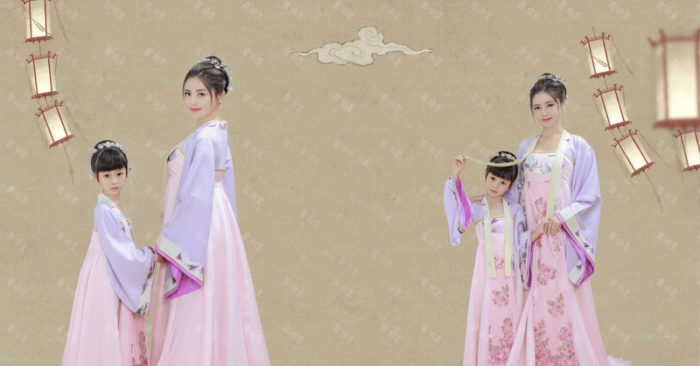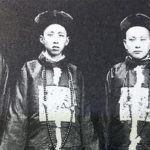The Classic of Female Education is one of the books used as teaching material for raising daughters during the Ming Dynasty, and the author is still unknown.
When I delved deeper into reading it, I was amazed. Hundreds of years ago, during ancient China, the education of women was meticulous and systematic.
If every girl could follow the requirements written in the classic work “The Classic of Female Education” to become a good girl, a good woman, a good mother, and to inherit and pass on the good moral qualities of Chinese traditional culture, then the gentle, kind, benevolent, and virtuous traits nurtured and cultivated in Chinese traditional culture would be truly beautiful!

To raise daughters to be honest and gentle, the ancients had their own set of rules. (Illustrative photo)
Below are some basic content in “The Classic of Female Education” about raising daughters:
Requirements for oneself
In The Classic of Female Education, it is written: “The first requirement for girls is to wake up early, leave the room, boil water and make tea for their parents, and greet their parents. After that, wash your face and comb your hair clean, learn to sew, and don’t be lazy.”
About behavior, The Classic of Female Education says: “When parents scold, don’t argue back. Listen to your older siblings’ teachings, and don’t argue and criticize frequently. Be careful with fire and lamps. When wearing clothes, wear old clothes that still look new.” These words imply that girls should be simple, frugal, gentle, and considerate.
Regarding one’s own gestures and behavior, a girl needs to: “Take care of yourself cautiously as if standing on thin ice.” “When standing or sitting, be proper, upright, and have gentle movements.”
Whether it is for a girl living with her parents or a married woman, sitting, lying down, and standing should be done gently, properly, slowly, and upright.
For a girl with an outgoing personality who likes liveliness, she needs to remind herself that “Ten wrongs and nine errors are all due to being agitated and confused.” Being quick does not mean that you have to move your hands and feet hastily and hastily, nor does it mean you have to speak loudly and rudely.
In daily life, every word and action of a girl should be appropriate, calm, and as thoughtful as possible.
Regarding the husband
About how to treat spouses, The Classic of Female Education says: “Respect each other like guests, help each other like friends, and avoid teasing and joking, which will make the couple have a bad face.”
The beloved wife respects the husband, and the husband values the wife. Both sides respect each other like guests. Husbands and wives must also help and support each other, sincerely as friends. Even in a passionate relationship between husband and wife, they should not show frivolous and reckless actions, avoiding rudeness.
Married life cannot avoid conflicts and disagreements due to trivial matters in daily life. Moreover, as years go by, the initial intense feelings will gradually fade, and between the two, they seem to only care about practical matters. At this time, husbands and wives need to empathize with each other, and place the word “tolerance” as a priority. “Living together as a couple for a hundred years, seeing each other every day, if we keep tolerance, we will not lose face, nor will we hurt each other.”
In The Classic of Female Education, it also teaches: “When husband and wife are of one family, they must have one heart and one mind. If they are not sincere with each other, they are harmonious on the surface but have a different inner purpose, different calculations, it will harm the family and destroy themselves.”
Regarding children
First of all, parents need to focus on nurturing themselves, becoming good role models for their children to learn from.
Every word and action of parents should be paid attention to because they will greatly influence the character of the child in the future. Especially the mothers in ancient times. Women in ancient times were in charge of family chores and helped their husbands in raising children, so their moral virtues were highly regarded.
In The Classic of Female Education, it is written: “When your child has a conflict with someone else, you should first educate and instruct your child. Regardless of who is right or wrong, they should be humble and yield in dealing with others.”
After getting married, women cannot neglect or underestimate the future and the future of their children. “If you have children, as a mother, you need to devote yourself and cannot neglect the education. No matter how difficult life is, you must let your children study, try to teach them to be good people, and inherit the legacy of the ancestors.”






































